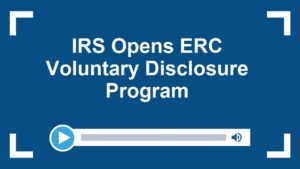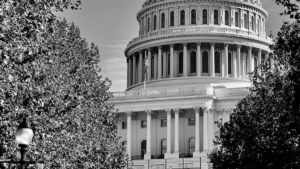Insights and Resources
Content Type:
Industry:
- All
- Asset management
- Automotive
- Business and Professional Services
- Consumer Goods
- Consumer Products
- Energy
- Financial Services
- Food and Beverage
- Government
- Health Care
- Healthcare
- Hospitals and Health Systems
- Insurance Industry
- Life Sciences
- Manufacturing
- Nonprofit
- Private Equity
- Restaurant
- State and Local
- Tech Media Telecom
Service:
- All
- Audit
- Business Strategy
- Business Tax
- Compensation and Benefits
- Credits and Incentives
- Cybersecurity Risk
- Digital Transformation
- Federal Tax
- Financial Consulting
- Financial Management
- Global Audit
- Global Compliance and Reporting
- International Services
- International Tax Planning
- Managed Services
- Private Client
- Public Companies
- Risk Consulting
- State and Local Tax
- Tax
- Technical Accounting Consulting
Topic:
- All
- AICPA Matters
- Artificial Intelligence
- Base Erosion and Profit Shifting (BEPS)
- CARES Act
- Coronavirus
- Cryptocurrency
- Cybersecurity
- Cybersecurity and Data Breach
- Digital Evolution
- Economics
- Employee Benefits
- ESG
- Exempt Organizations
- Financial Reporting
- Fund Management
- Global
- Global Compliance
- Inflation
- Labor and Workforce
- Partnership
- Payroll and Employment
- Policy
- Regulations and Compliance
- Regulatory Compliance
- SEC Matters
- Supply Chain
- Tax Reform

The CTA’s New Rule: What You Need to Know About BOI Reporting
Uncover the new Corporate Transparency Act (CTA) rule effective from 2024, requiring specific companies to submit Beneficial Ownership Information (BOI) reports to aid U.S. law enforcement. Learn who this law affects, what information needs to be reported, and the severe penalties for non-compliance.

The CTA: A Step Towards Greater Transparency in Business Operations”
The Corporate Transparency Act is reshaping the way businesses operate by mandating the disclosure of Beneficial Ownership Information. Unpack the intricacies of this new legislation, its requirements, exemptions, and the significant repercussions of non-compliance. This article serves as a comprehensive guide to understanding and successfully navigating the changes brought about by the Act.

IRS Opens ERC Voluntary Disclosure Program
If you're a business owner who mistakenly claimed the Employee Retention Credit, find out how the new IRS Voluntary Disclosure Program can help you rectify the situation. Discover the eligibility criteria, benefits, and application process in our informative video.

How the CTA is Reshaping the Business Landscape in the U.S?
The Corporate Transparency Act (CTA) has introduced new Beneficial Ownership Information (BOI) reporting obligations, changing the landscape of transparency and accountability for businesses in the U.S. Explore the requirements, exemptions, and repercussions of non-compliance with these new rules. Arm yourself with the knowledge to navigate these changes successfully.

Beneficial ownership
test

FASB proposes guidance on induced conversions of convertible debt
This proposed ASU clarifies how to determine whether certain settlements of convertible debt should be accounted for as induced conversions.

The middle market artificial intelligence (AI) playbook
AI applications can deliver significant value, but you must first understand what the technology is, what it can do and how to best implement it.

The Corporate Transparency Act: The Ultimate Guide to Compliance
Discover how the newly enacted Corporate Transparency Act is reshaping the U.S. financial landscape by curbing crimes like money laundering and tax evasion. Uncover the stringent reporting requirements for companies, the penalties for non-compliance, and how you can ensure your business stays compliant. Don't miss out on crucial insights that could save your business from hefty fines and potential imprisonment.

Get Prepared: How to Navigate the New CTA Reporting Requirements
Take a look at the upcoming changes to US business reporting requirements as the Corporate Transparency Act (CTA) takes effect from January 2024. With a focus on 'beneficial owners' and 'company applicants', the Act aims to crack down on financial crimes and ensure more transparency. Learn about the 23 exemptions, the severe penalties for non-compliance, and how to prepare your business.

Cracking Down on Financial Fraud: The Impact of the Corporate Transparency Act
The Corporate Transparency Act (CTA) is a significant shift in the U.S. financial sector, requiring the reporting of beneficial ownership information from non-exempt entities to FinCEN. Our article delves into who is considered a 'beneficial owner,' which entities are obligated to report, and the severe penalties for non-compliance. Learn how to prepare your company for the CTA's implementation in 2024 to ensure your organization stays compliant.

Are You Ready for 2024? New Reporting Rules for U.S. Companies
As of January 1, 2024, the Beneficial Ownership Information Rule will mandate small businesses in the U.S to disclose personal information about their key decision-makers. This article provides a detailed overview of the new reporting requirement, potential penalties for non-compliance, and who within the organization must report. Stay informed and prepare your business for this significant change in the regulatory landscape.

Retirement Planning Reimagined: The Impact of SECURE Act 2.0 on Your Future
Uncover the intricacies of the SECURE Act 2.0, a legislation building on the original SECURE Act with significant amendments to retirement planning. Learn how it provides more flexibility in retirement planning, with provisions including employer matching contributions to retirement plans based on student loan payments. Grasp the importance of understanding these changes and their potential impact on you or your business."

“Employer-Sponsored Retirement Plans Get a Boost with Secure Act 2.0
Discover how the Secure Act 2.0, effective from January 2024, can enhance your financial strategy with over 90 provisions aimed at safeguarding retirement savings and creating new advantages for college savings plans. Learn about the Act's unique provisions designed to keep employees connected to their retirement accounts through job transitions and the groundbreaking changes for 529 college savings plans. This article will help you to navigate the complexities of the Act and align these new provisions with your financial goals.

Revamping American Retirement: The SECURE Act 2.0 Explained
Uncover how the SECURE Act 2.0 of 2022 is poised to change the landscape of retirement and college savings in America. With new provisions such as a lost and found database for retirement accounts and the option to convert unused 529 funds to a Roth IRA, this legislation offers promising possibilities for American families. Explore this comprehensive legislative package and learn how it could pave the way for a future of financial security.

Say Hello to Higher Savings: Secure Act 2.0’s Impact on 401(k) and 403(b) Enrollments
Discover the transformative measures of the Secure Act 2.0 set to bolster retirement savings and address student loan debts through employer contributions. Learn about the exemption of Roth accounts from Required Minimum Distributions and the automatic enrollment in 401(k) and 403(b) plans for eligible employees. This article explores these changes and more, and their impact on employers and employees alike.
Subscribe to receive important updates from our Insights and Resources.